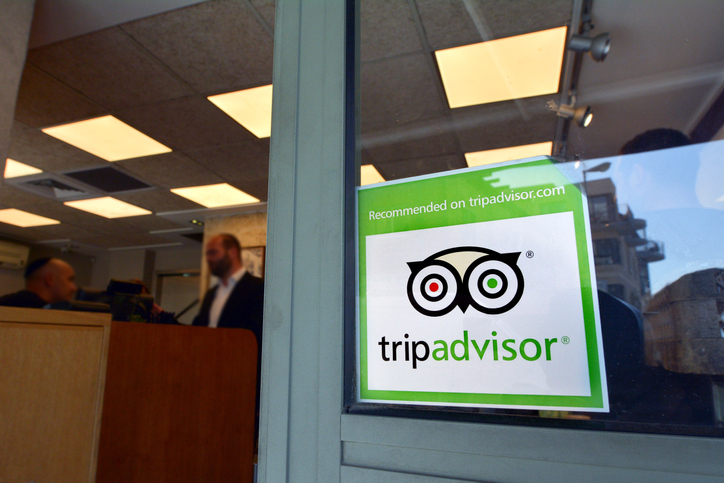Even now at the asset manager level for a luxury boutique hotel, I still find myself evaluating online reviews on TripAdvisor, Expedia and other major third-party rating services, both because I understand their influence with guests and also as a quality control measure.
Hoteliers all covet ratings that approximate a perfect five stars as we know that each platform can be easily aggregated to show rankings in descending order. In this flawed system where hotels aren’t readily segregated by class, you can potentially lose top placement to a cruddy motel down the road simply because the innkeeper there has time to chat up the temporary inhabitants of all eight rooms under his or her purview.
Thus, negative responses are put under a microscope (or should I say proctoscope!) because they are seriously damage future revenues. And it’s under these conditions that certain guests have come to abuse this system for personal gain, vocally or implicitly threatening properties for discounts and comps when their lofty expectations aren’t egregiously surpassed.
Situational Analysis
Here are four such examples from my recent endeavors working hands-on with independent hotels. You tell me if you think the low star rating was deserved or not.
- Spa Rescheduling. One morning, two spa service providers phone in sick and the spa manager cannot find replacements on short notice. Immediately, she calls the customer to advise that the service has to be rescheduled. The customer says that ‘her entire day has been ruined’ and that she ‘simply cannot accept that a replacement could not be found’. The customer then gives a one-star review on TripAdvisor, not citing any other flaws in the hotel. Of note, this client was a day spa user and not even an overnight guest of the property.
- Missed Reservations. A guest of the hotel books a 6:45pm dinner reservation for two on a busy Saturday night. Without any prior notice, this couple arrives at 8:30pm. Unsurprisingly, the restaurant is full; they are asked to wait at the bar until a table is available. The couple is given a complementary glass of champagne and appetizers while waiting. Champagne consumed; the two guests order their meals for takeout to the room. With no comments left on the quality of the takeout food itself, do you think the restaurant deserves to lose a full three stars because the guests couldn’t commit to their allotted timeslot?
- Broken Hot Tub. A couple is staying in a room with a jacuzzi tub and a separate shower. They go to use the jacuzzi and it does not work properly. Maintenance promptly arrives and notes that the timer control works for about a minute then stops – an issue that could not be identified by housekeeping during a room inspection. The guests are moved to another room that’s two categories higher, which they remark is fantastic. They also receive a complimentary bottle of champagne and an apology from the MOD. No other issues from the guest, yet another two-star review notched.
- Billing Snafu. One diner orders the risotto from the menu. Upon its arrival, the guest claims the risotto is not the way she likes it. The order is taken back and a new dish is provided. The diner then remarks to the server that the replacement is exceptional. As compensation, two desserts are offered and accepted. The guest check deletes the risotto and comps the desserts but charges for the replacement main. The guest pays then blasts the restaurant with a one-star review for an inaccurate bill.
So, what can the hotel owner to do in each of these situations? You can respond to each review as accurately as you can and explain your side of the story. But it is a slippery slope to avoid being accused as unfriendly. Most customers won’t have time to read the reviews let alone the manager’s responses – they only see the defamatory star ratings.
Course Correction
A fundamental of our justice system was William Blackstone’s “Commentaries on the Laws of England” published in the 1706s. Paraphrasing, it stated that it was far better to have ten guilty men go free then have one innocent be charged. This is one of the places where we derive the ‘innocent until proven guilty’ catchphrase.
However, in today’s harried pace of society, it appears that the presumption of guilt provides speed and efficiency, particularly in the absence of a formalized system of due process. Although this has ramifications far beyond guest reviews, there is definitely some abuse at work here whereby guests have all the power to destroy a hotel without recourse.
It’s not like we can sue a guest for libel – these are their ‘opinions’ and yet they carry so much weight. Nor is lobbying the platforms to remove the slanderous reviews a viable option as they are notoriously slow in following up.
Thus, the one-star rating remains on your permanent record, unaffected by any polite justification offered through the manager’s response. You are culpable in perpetuity based solely on the whims of your customers. You are guilty until proven guilty, with no chance of effectively demonstrating your innocence.
One of the reasons why Airbnb is the goliath that it is today is because of how it has perfected the two-way rating system. On its platform, both host and guest critique each other. If a customer accrues a bad reputation for being especially demanding or for leaving a slew of negative reviews, then a future host can take action to prevent said guest from staying at his or her abode. This approach seems to balance the equation.
I close out by asking what hoteliers can do to mitigate their losses? Obviously, your onsite services must be flawless, but even then there are always all factors beyond your control that may cause guests who are already inclined towards spitefulness to last out online. How do we collectively go about fixing a system that is so heavily in favor of the guest?
